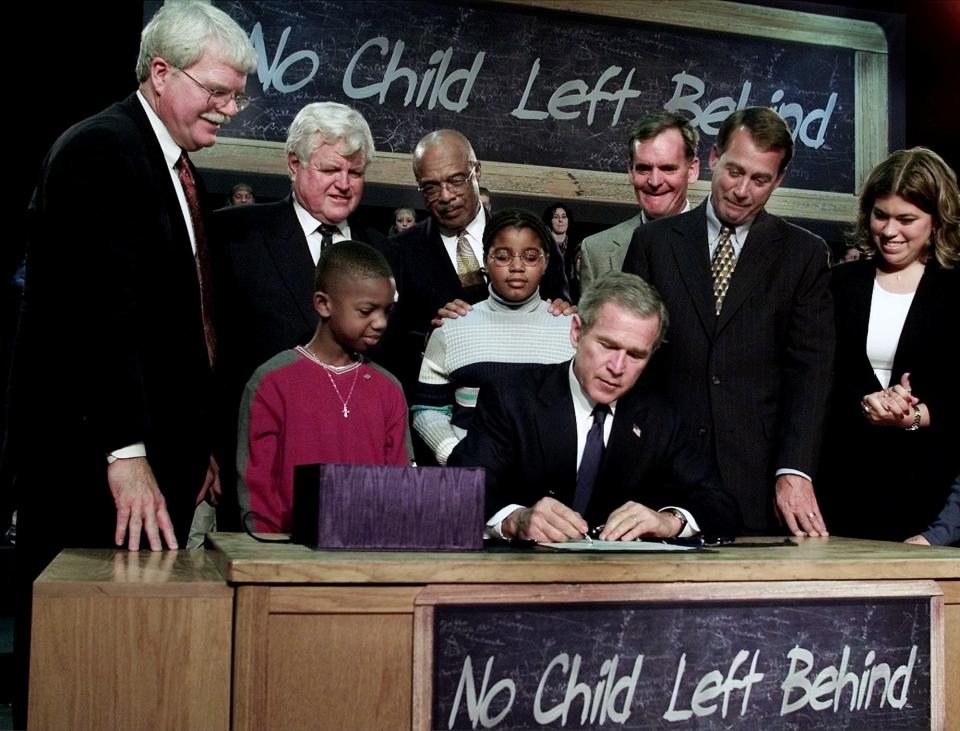A former RI mayor urges Democrats to embrace charter schools. This is wrong | Opinion
- Oops!Something went wrong.Please try again later.
Joseph H. Crowley is a retired educator and co-author with Albert Colella of "Poverty & Despair vs Education & Opportunity."
Once again, a Rhode Island politician is entering the educational arena for political purposes with little or no understanding of the implications of his proposal. The August 19 edition of The Journal included a commentary by former Providence mayor Jorge Elorza, suggesting Democrats will lose to Republicans if Democrats do not embrace school choice – charter schools.
For beginners, the former mayor once again delivers a slap in the face to teachers such as those in Providence and others teaching large numbers of children living in poverty. These are the educators who dedicated their lives to the neediest of students in neighborhoods where gunfire may have erupted the previous night and who must gingerly walk past discarded drug paraphernalia.
More: The teacher pipeline is broken. Segue Institute for Learning wants to fix it.
These are the teachers who have been demeaned and vilified because their students do not have test scores matching the scores of students in more affluent communities. There is more than ample research indicating the score differential between richer and poorer students is not a result of schools and teachers but is the result of the educational advantages of growing up in a well resourced home with two reasonably well educated parents − versus a home where there is no guarantee of a next meal and which may be led by a single, high school dropout. These are the teachers who, above all, should be recognized and honored for their commitment to our neediest students.
The former mayor uses as his argument for charters the CREDO study done by Stanford University, which shows charter school students perform at higher levels than traditional public schools. He misses many points in his rush to garner votes for Democrats.

For starters, the CREDO study points out children living in poverty, particularly minority children, continue to have significant learning gaps in both literacy and math regardless of the schools they attend. If voters have been led to believe charter schools close the learning gaps between more and less affluent children, they have been misled. If the parent of a needy child has been convinced the child will achieve to the same level as more affluent children by transferring their child to a charter school, they have been misinformed.
Charter schools were created as education laboratories. Charters were freed from many of the restrictions on traditional schools so they could experiment with various pedagogical models. The intent was successful models would then be implemented in traditional schools. Not long after the inception of charters, the No Child Left Behind Act (NCLB) of the George W. Bush Administration mistakenly identified schools as the source of learning differences between rich and poor. Parents were encouraged to send their children to alternate schools. This notion has been debunked time and again. NCLB, with all of the time and money invested to improve “failing” schools, made no difference in the learning gaps.
More: Report: Poor English skills a hallmark of RI school districts. Who scored highest, lowest?
The history of charter schools is spotty. In their 28-year history, half have failed. A report from the Brookings Institution makes the following comment with reference to the CREDO studies mentioned by Elorza: “The key takeaway is that charter school students, in general, perform about the same as their matched peers in the traditional public schools, but there is variation across different types of schools and groups of students.”
One key advantage of charter schools in improving student scores is more learning time − longer and more days. In the next school year, Providence is adding 30 minutes to its school days. It will be some time before the impact of this change is measurable. However, logic dictates more school time will result in improved student test scores. The added time may not be sufficient to totally eliminate the test score gaps between more and less wealthy students. Totally eliminating the difference in scores will be achieved when Rhode Island no longer has 15% of its children living in poverty.
This article originally appeared on The Providence Journal: A commentary by former Providence mayor suggests Democrats will lose to Republicans if they do not promote school choice.

